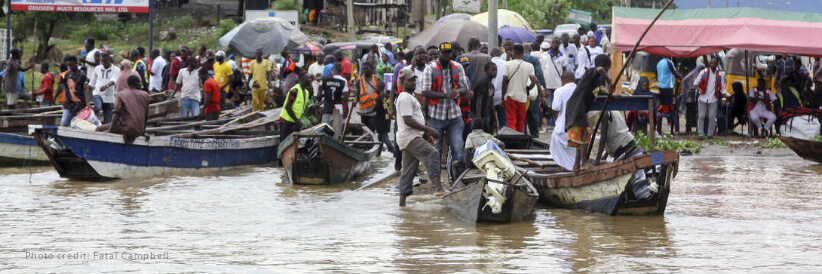Nigeria is experiencing its worst flooding in at least a decade, with 2 million people forced to flee their homes. At least 603 people have been killed and more than 2,500 injured in the ongoing flooding, which has severely impacted 29 of the country’s 36 states.
More than 80,000 homes have been destroyed, along with farmland and infrastructure, complicating relief efforts and robbing families of their livelihoods.
With rains set to continue for several weeks, the humanitarian situation is expected to worsen.
Multiple crises
Millions of people are in urgent need of basic items such as food, water, and shelter. Having escaped the flooding, many now find themselves exposed to other risks in unhygienic or unsafe temporary shelters.
A rise in disease is expected in the country, which has already reported a spike in cholera cases this year. Following the onset of the flooding, some states have begun reporting rises in water-borne diseases, respiratory diseases, and skin complaints.
Nigeria’s economy and food security are also expected to be impacted. Fuel and other goods have been unable to reach their destinations for weeks as roads and bridges have been washed away. Scarcity is pushing up the prices of even basic items amid already-high inflation.
On top of this, displaced persons cannot maintain their livelihoods without access to their farms, livestock, and shops – many of which have been impacted or completely destroyed by the flooding. Some schools and health centers are now unsafe to use or have been turned over for use as temporary shelters, adding to the expected long-term impact of the disaster.
Partners on the ground
Islamic Relief does not have a presence in Nigeria, but as part of the disaster preparedness planning, the organization is in contact with local partners recently identified through the STRIDE Capacity Strengthening project.
STRIDE is part of Islamic Relief’s work towards localization of aid by strengthening the capacity of local actors to respond to and play a more prominent role in disaster responses. This will help to make them less reliant on international assistance.
The partners are on the ground providing aid where it is needed most, but they are facing a severe shortage of funding. Islamic Relief is finalizing a support plan and has allocated funds to help assist those affected by the flooding.

